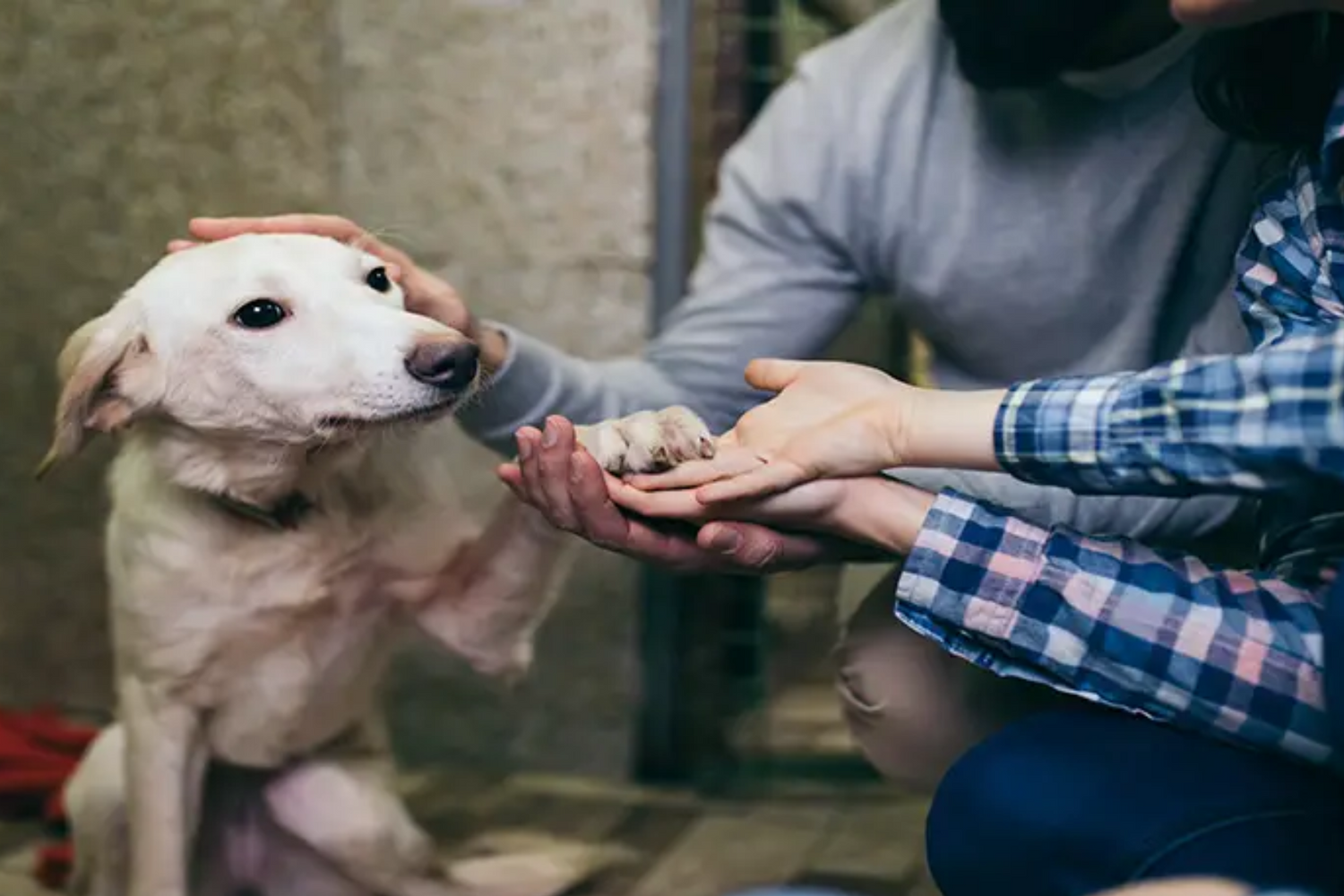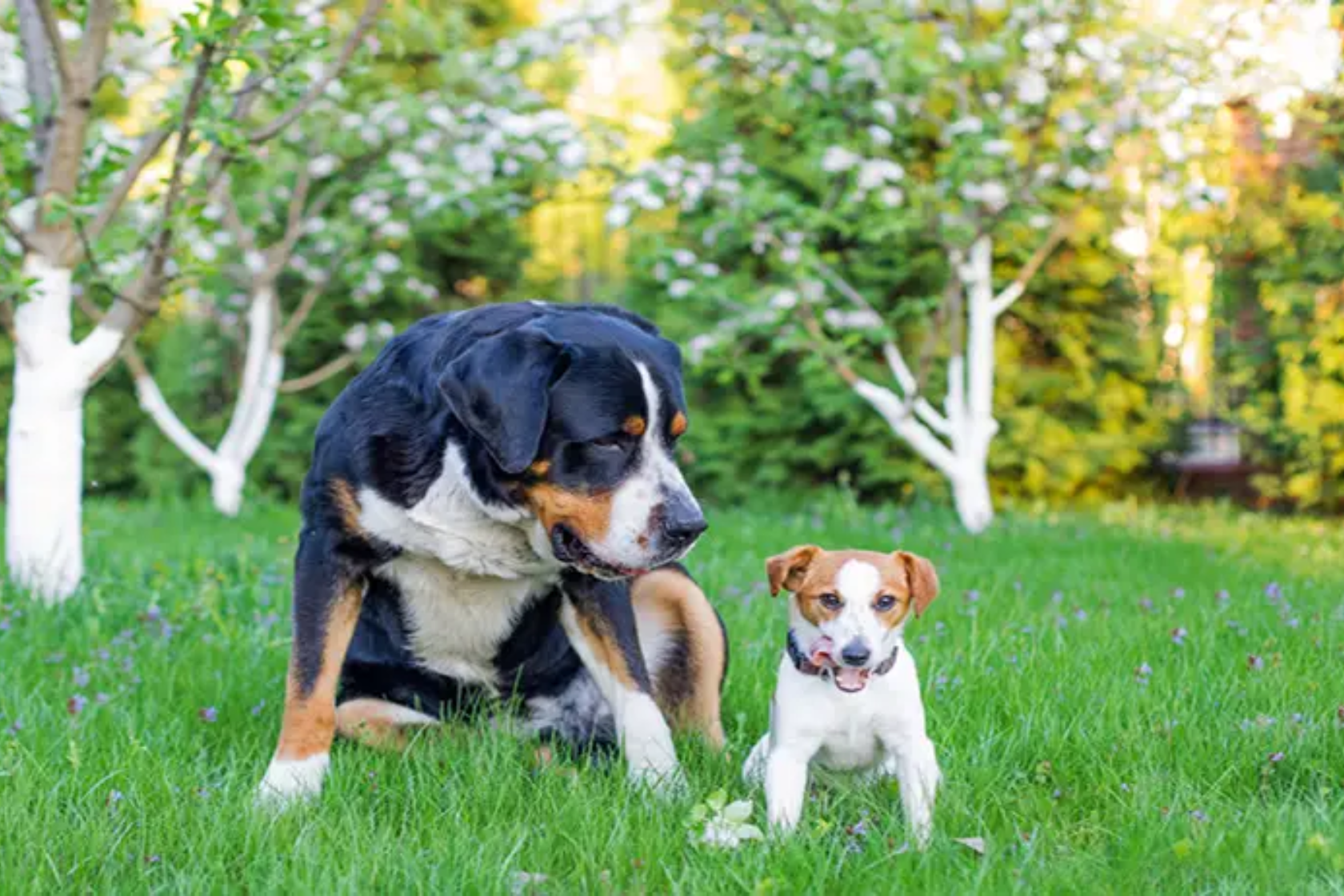Kirsten Dillon, our Animal Behaviourist, shares her advice on what you need to know when adopting a rescue dog.
“Not all rescue dogs are ‘broken’ but they all need patience, space and love regardless.”
Adopting or rehoming a dog is one of the most rewarding things you can do. Not only are you potentially saving a life, you are freeing a space in a foster home or kennel which ensures another dog can be helped.
Puppies are often available but remember that by adopting an adult dog, you get to avoid the exhausting nightmare that is early puppyhood and get a dog that is already house trained and over the destructive chewing/teething phase. Also, you will have a clear indication of their adult size and grooming requirements, along with exercise and enrichment needs. Rehoming an older dog is great for those that do not want the 15-year commitment that goes with most breeds. Many people’s lives change as their families grow up, so an older dog is win-win.
Listen carefully to what the rehoming organisation are saying, don’t be led by emotions only. We all want to take every single dog home when we visit a shelter, but it’s far kinder to be patient and make a good match and not have to return the dog because you acted on impulse.
Having said that, assessing dogs in a rescue environment is extremely tricky, so if nothing is known about the dog’s background, you will be taking a chance no matter what the rescue finds. Many dogs arrive in a rescue situation quite shut down through fear and anxiety and can be almost impossible to read, it is only once they gain their confidence, we can truly see their personality, warts and all.
There is always a general rule of three when bringing a dog into your home which can be very useful to remember. Whilst this is only a guideline it demonstrates clearly how to help your dog adjust to their new environment.
3 Days
It takes the average dog three days to even begin to decompress after being rehomed. During this time, they may hide, they may not eat, and they may test boundaries as they try to work everything out. This is the time where you leave them alone to figure things out. Do not ask them to start training, walk too far, meet your friends or indeed anything else. Allow them to arrive at the conclusion that they now have a safe and happy place by themselves. Offer love, patience, good food and the chance to be alone if required.
3 Weeks
This is when your dog will begin to feel at home. Gently introduce your routine and boundaries and they will begin to understand what is expected of them in their new home. Remember they may well still feel stressed and anxious, so continue to support any fears at this time. If your dog was shut down in rescue, this is where behaviour concerns or issues may start to surface.
3 Months
This is the time when your dog will start to truly settle, understand and trust you fully. You can really build a bond as your dog feels safe and secure.
Don’t hesitate to utilise any help the rescue organisation offers post adoption or employ an ABTC (Animal Behaviour and Training Council) trainer or behaviourist if you think you need help.
Not all rescue dogs are ‘broken’ but they all need patience, space and love regardless.
By Kirsten Dillon
Animal Behaviourist & Canine Specialist



